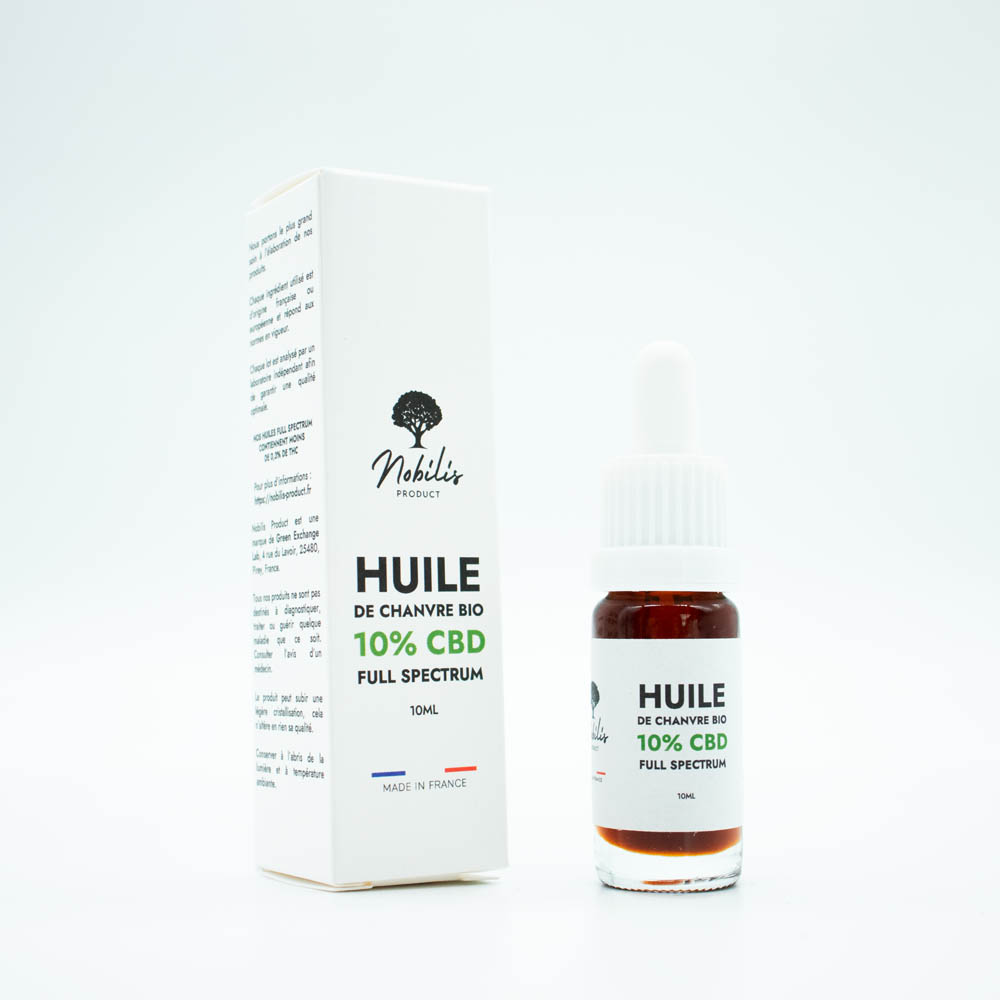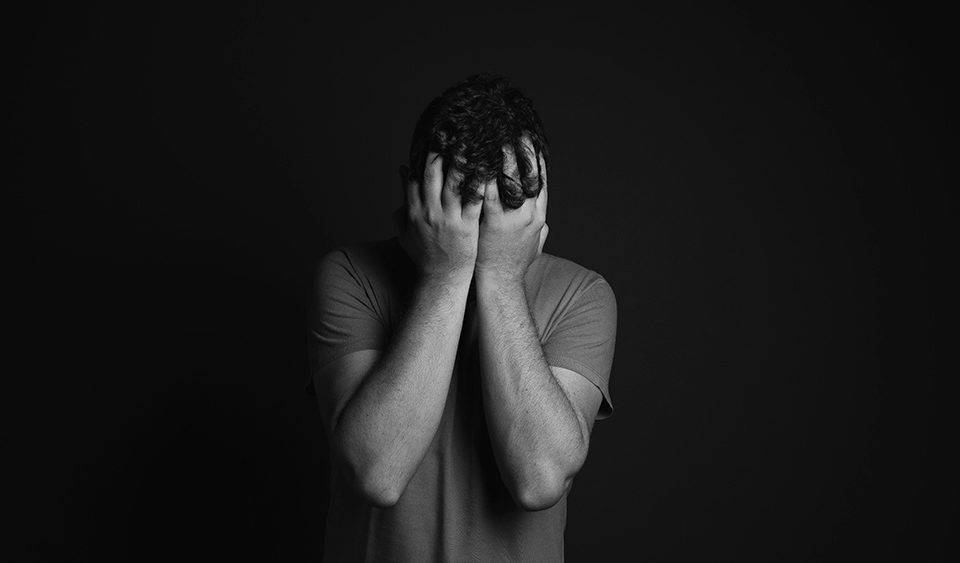
Why is full spectrum so much more effective than CBD isolate?
November 12, 2024
[Study] Full Spectrum extracts are more effective than CBD isolate.
November 21, 2024Table of contents
Anxiety is a mental health disorder that affects a significant proportion of the world's population. In fact, according to the World Health Organization (WHO), some 264 million people worldwide suffer from anxiety (3.3%).
There are many pharmacological treatments available to manage anxiety (antidepressants, SSRIs and benzodiazepines). However, these drugs can be accompanied by significant side effects. And they don't work for everyone...
Faced with this, many people are turning to more natural options, such as CBD products.
Indeed, CBD (cannabidiol) has shown promising potential in the treatment of anxiety. Its anxiolytic properties are supported by numerous studies. However, " full spectrum " CBD products, which contain all the natural compounds of the cannabis plant, are still little studied, despite their potentially superior efficacy thanks to a phenomenon known as the "entourage effect".
A recent study carried out on 14 participants highlights the potential of CBD full spectrum to reduce anxiety symptoms. We invite you to discover the results.
📚Full spectrum: definition, action on the body and benefits
Before presenting our study, let's take a moment to understand what a full spectrum extract is, how it acts on the body, and why it acts differently to CBD in pure, isolated form.

What is a full spectrum extract?
A full spectrum CBD extract is distinguished by the fact that it contains all the natural compounds of cannabis. In addition to CBD, these extracts include various minor cannabinoids, terpenes and flavonoids, each contributing to the overall effects of the product.
- Cannabinoids include CBD and THC, but also minor cannabinoids such as CBD (cannabinol), known for its sedative effects, and CBG (cannabigerol), known for its anti-inflammatory properties;
- Terpenes, aromatic compounds found in many plants, are also included in full spectrum extracts. Terpenes such as limonene, linalool and beta-caryophyllene are known for their therapeutic effects. For example, limonene can help reduce stress, while linalool has calming and sedative properties;
- Flavonoids, although less studied, also play an important role. They contribute to the plant's anti-inflammatory and antioxidant effects. Cannabis contains cannflavine, a unique flavonoid whose analgesic properties are 30 times more powerful than those of aspirin;
Note that even if a full spectrum extract contains THC, the legal concentration is less than 0.3%, far too low to induce a psychoactive effect.
How do full spectrum products work?
The action of full spectrum extracts is explained by a phenomenon known as the "entourage effect", sometimes called "synergistic action" in biology.
The entourage effect is a theory according to which the various compounds in the cannabis plant work together to enhance the therapeutic effects of CBD. This idea of "synergy" was introduced by Dr. Ethan Russo, a renowned cannabinoid researcher.
According to him, the cannabinoids, terpenes and flavonoids present in a full spectrum extract act in a complementary way, modulating the effects of CBD and the other compounds to offer a more powerful and balanced therapeutic effect.
For example, beta-caryophyllene, a terpene often found in full spectrum products, is a CB2 receptor agonist, giving it anti-inflammatory properties. When combined with CBD, its effects are amplified, offering a more marked reduction in anxiety.
Terpenes also contribute to this entourage effect. Studies have shown that the high or low of a cannabis variety is directly linked to its terpene profile.
Comparison of the action of full spectrum and CBD isolate
One of the main differences between isolated CBD and full spectrum CBD is the way the body responds to them in increasing doses.
Indeed, isolated CBD is known to exhibit a bell-shaped response curve: its efficacy increases up to a certain point, then decreases beyond this optimal dose. This makes optimal dosing difficult for users, as doses that are too low or too high may be ineffective, or even cause adverse effects.
In contrast, full spectrum CBD shows a more linear response curve, where efficacy increases progressively with dose without plateauing. This linear response facilitates dosing, enabling users to adjust their intake according to their needs without risking a loss of efficacy.
This represents a major advantage for chronic anxiety sufferers, who may need regular dose adjustments to manage their symptoms.
What's more, the stability of the full spectrum's effects ensures long-lasting efficacy, particularly for long-term treatments. Users can therefore benefit from a more predictable product tailored to their individual needs.
👩⚕️ Full spectrum CBD products against anxiety: study presentation
Given the potential efficacy of full spectrum compared with isolate, it is essential to conduct studies to better understand its actual effectiveness.
The study presented here represents an important step forward in research into the therapeutic effects of the full spectrum for the treatment of anxiety. It directly evaluates the entourage effect and the linear response curve on human subjects.

Study methodology
This open clinical study was conducted on 14 participants suffering from anxiety. For four weeks, patients received a full spectrum CBD extract, containing 30 mg CBD and less than 1 mg THC per day, divided into three daily doses.
The aim was to evaluate the effectiveness of the treatment on anxiety symptoms, but also on secondary criteria such as mood, quality of life, sleep and cognitive function.
Anxiety was assessed using recognized clinical tools, such as the Beck Anxiety Inventory (BAI) and the OASIS anxiety severity scale. This rigorous methodology provides reliable data on the product's efficacy, and enables us to observe changes in various aspects of patients' well-being.
Results of the study on Full Spectrum extracts
The results revealed a significant reduction in anxiety within the first week of treatment, a crucial aspect for patients in need of rapid relief.
After three weeks, all participants showed significant improvement, confirming the rapid and long-lasting potential of CBD full spectrum. In addition, improvements in cognitive functions, such as reaction speed and fewer errors, were observed, an essential aspect for people whose anxiety interferes with mental abilities.
Side effects were limited and infrequent, with minor symptoms such as drowsiness and dry mouth. This demonstrates that full spectrum is well tolerated by patients, unlike conventional treatments often associated with more serious side effects.
Study limits
Although the results of this study are promising, there are certain limitations to bear in mind.
Firstly, the panel of 14 participants remains limited and does not allow conclusions to be generalized to a larger population. Furthermore, the study does not include a direct comparison with the use of isolated CBD, which leaves some doubt as to the true extent of the entourage effect compared with pure CBD treatment.
Finally, no evaluation of long-term effects has been carried out, which would be essential to determine the safety and lasting efficacy of CBD full spectrum in patients suffering from anxiety.
Larger, controlled, double-blind studies are therefore needed to confirm these results and assess the long-term effects of this treatment.
💡 CBD full spectrum against anxiety: conclusion
This study provides early evidence of the efficacy of full spectrum CBD in treating anxiety.
As we've seen, thanks to the entourage effect, this type of product can reduce symptoms at lower doses than those required for isolated CBD, while minimizing the risk of side effects.
In addition, the linear response of the full spectrum, combined with the synergistic properties of cannabinoids and terpenes, results in a more stable and predictable treatment, particularly beneficial for people requiring long-term treatment.
However, while these results are promising, further research, including double-blind studies, is needed to confirm these observations. If these studies confirm the current results, full spectrum CBD could become a treatment of choice for anxiety, offering a natural and effective alternative to traditional drugs.
![[Study] Anxiety and CBD: human study shows efficacy of full spectrum](https://nobilis-product.fr/wp-content/uploads/2023/09/logo-Nobilis.png)



